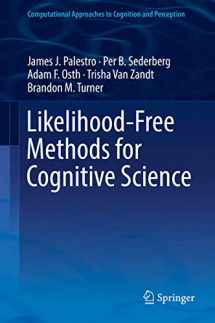
Likelihood-Free Methods for Cognitive Science (Computational Approaches to Cognition and Perception)
Book details
Summary
Description
This book explains the foundation of approximate Bayesian computation (ABC), an approach to Bayesian inference that does not require the specification of a likelihood function. As a result, ABC can be used to estimate posterior distributions of parameters for simulation-based models. Simulation-based models are now very popular in cognitive science, as are Bayesian methods for performing parameter inference. As such, the recent developments of likelihood-free techniques are an important advancement for the field.
Chapters discuss the philosophy of Bayesian inference as well as provide several algorithms for performing ABC. Chapters also apply some of the algorithms in a tutorial fashion, with one specific application to the Minerva 2 model. In addition, the book discusses several applications of ABC methodology to recent problems in cognitive science.
Likelihood-Free Methods for Cognitive Science will be of interest to researchers and graduate students working in experimental, applied, and cognitive science.


We would LOVE it if you could help us and other readers by reviewing the book
Book review



